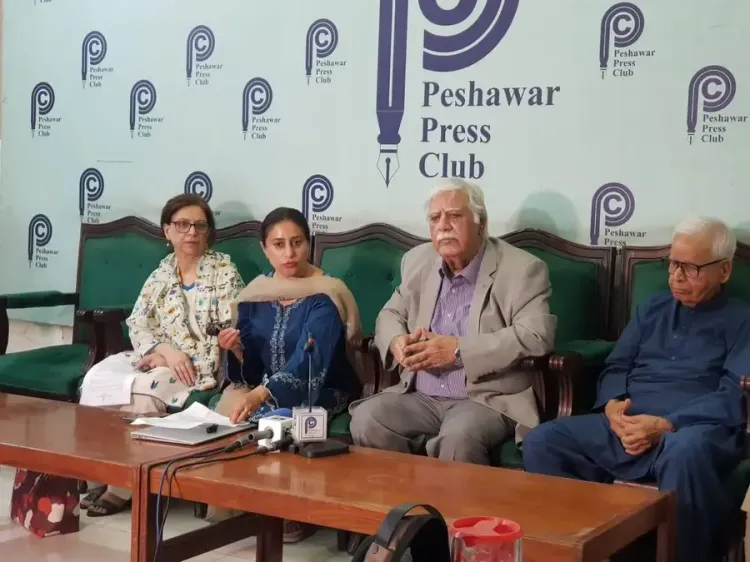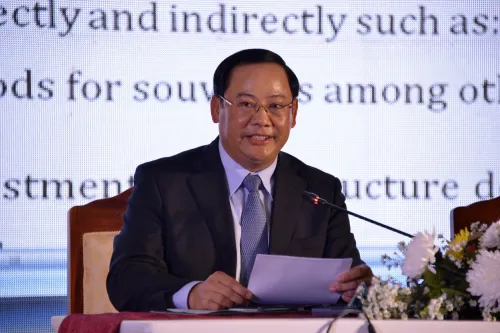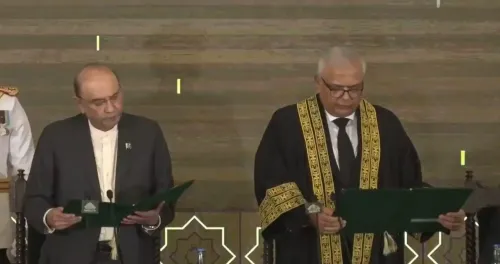Is the Human Rights Situation Deteriorating in Khyber Pakhtunkhwa?

Synopsis
Key Takeaways
- The HRCP highlights serious human rights concerns in K-P.
- Violence and displacement are on the rise in merged districts.
- Reports of civilian casualties demand immediate government action.
- The K-P Actions Ordinance poses significant legal and ethical issues.
- Enforced disappearances remain a persistent problem.
Islamabad, Sep 27 (NationPress) The Human Rights Commission of Pakistan (HRCP) has raised significant alarms regarding the state of human rights and security in Khyber Pakhtunkhwa (K-P) province, pointing out the government's failure to safeguard citizens' right to life and liberty, especially in the merged districts.
A comprehensive fact-finding mission led by the HRCP took place from September 24 to 26, engaging with diverse civil society representatives, including members of the press, legal experts, human rights advocates, families affected by conflict, political leaders, law enforcement, and senior officials from the K-P provincial government, including the Chief Minister.
“Local communities and stakeholders have expressed serious concerns about a troubling connection between rising violence, displacement, and security operations, particularly in relation to the extraction of natural resources under the proposed Khyber Pakhtunkhwa Mines and Minerals Act 2025,” stated the HRCP.
“In numerous areas within the merged districts, militants seem to operate without restraint, reportedly extorting residents, threatening those who resist, and limiting movement during the afternoons. There are indications that law enforcement agencies have reduced their presence in these regions,” the statement continued.
The HRCP’s investigation also highlighted alarming reports of recent civilian casualties in Tirah valley, where over 30 individuals, including women and children, were reportedly killed due to aerial bombardments conducted by the Pakistani Air Force.
The commission called for a thorough investigation, urging both provincial and federal authorities to stop shifting blame. The HRCP emphasized that insufficient compensation for victims' families cannot replace the need for state accountability and due process.
Alarmingly, the mission pointed out that the Khyber Pakhtunkhwa Actions (in Aid of Civil Power) Ordinance 2019, a controversial law still active, continues to endorse internment centers and preventive detention, violating Article 10 of the Constitution and Pakistan's international legal commitments.
Furthermore, it noted that decreased judicial and administrative oversight, along with weak regulatory frameworks, perpetuate enforced disappearances, with reports of thousands of cases despite significantly lower official statistics.
The mission also documented the intimidation of journalists, lawyers, and human rights activists, particularly those campaigning against enforced disappearances.
“The allegation of law enforcement and security agencies being complicit in the forced disappearances of individuals, who are subsequently traced to internment centers, is a serious concern that demands an urgent response from the government,” the HRCP stressed.









